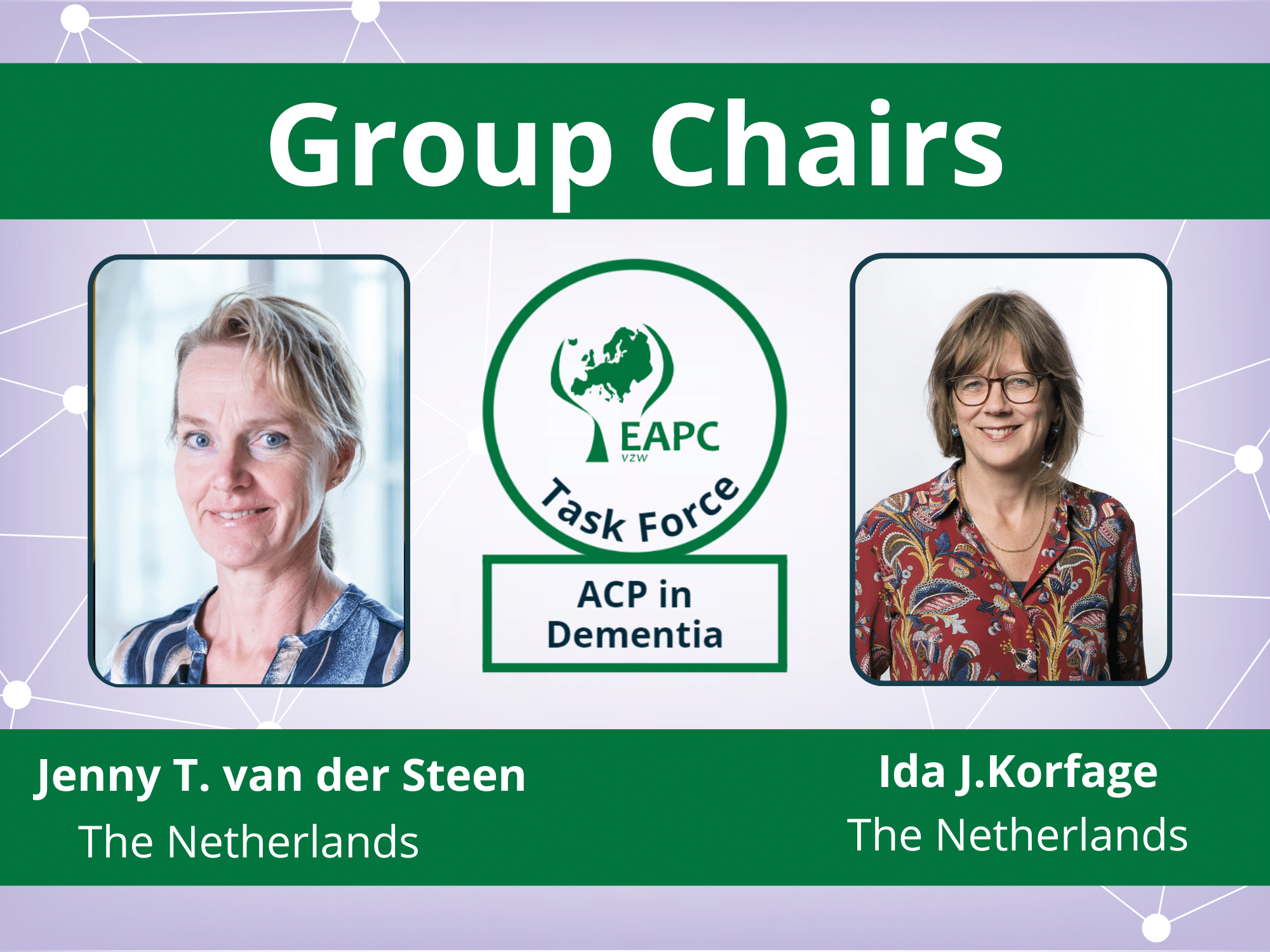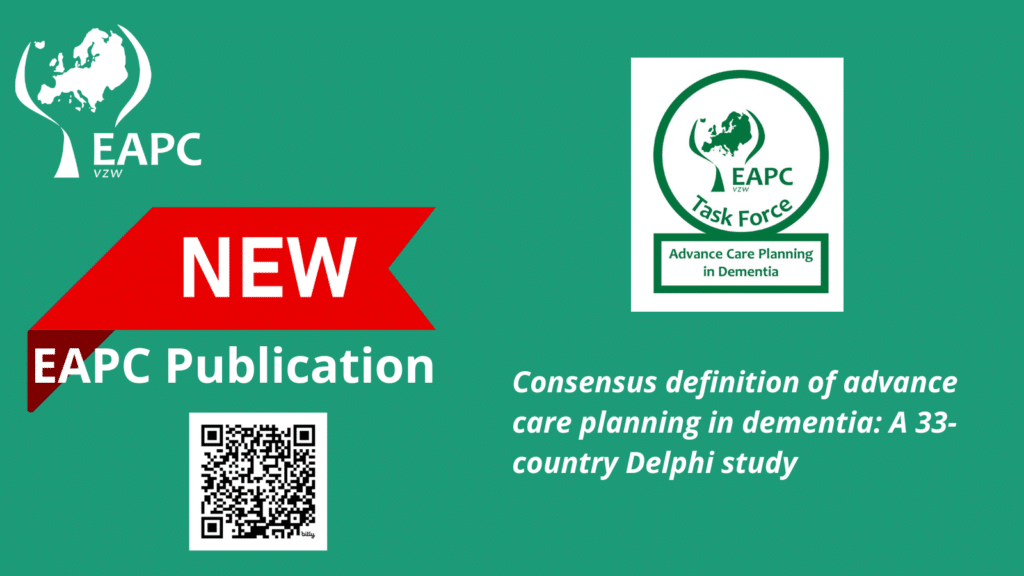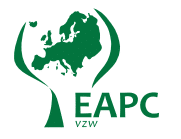Conceptualisation and recommendations for practice, policy and research
We, as the EAPC task force for ACP in dementia, aim to improve ACP in dementia, to achieve the following goals:
1. to promote societies that address future care needs of people with dementia based upon what they and their families and supporters consider important;
2. to provide people with dementia with equitable opportunity and a voice to identify and articulate what is important to them in their lives and in their relationships with those around them;
3. to protect people with dementia, wherever possible, from non-preferred or otherwise inappropriate care and treatment.
4. to support the notion that human existence has meaning and people, irrespective of diagnosis or cognitive abilities, are worthy of time to prepare for the future;
5. to foster inclusiveness in making ACP available for all, with tailored approaches as needed by specific groups.

The core taskforce team at the EAPC World Congress in Rotterdam, June 2023. From left to right: Lieve Van den Block, Jenny van der Steen, Ida Korfage, Miharu Nakanishi.


- Consensus definition of ACP in dementia: A 33-country Delphi study has recently been published.
Click here to access the paper
- Future policy and research for advance care planning in dementia: consensus recommendations from an international Delphi panel
Click here to access the paper
Background information
Palliative care in dementia including advance care planning is different from palliative care in diseases in which patients usually retain capacity for decision making until a late stage. For example, with dementia, managing and anticipating an uncertain course of the disease, and preparing family caregivers for a central role in decision making are essential. EAPC has issued a white paper on palliative care in dementia (van der Steen et al., 2014) which includes a domain on advance care planning, and a white paper on advance care planning which was limited to patients with decisional capacity (Rietjens et al., 2017). The leaders of the two previous relevant EAPC white papers join forces to build upon and expand their previous work to develop guidance on advance care planning in dementia.
Aims and objectives
To conceptualise advance care planning in dementia in terms of its definition, elements, and any differences with advance care planning in patients with other diseases who are expected to retain capacity. Further, based on evidence and consensus, to provide recommendations for optimal advance care planning in practice, for policy initiatives to promote advance care planning in dementia, and for areas that need research, and design issues.
Members

Assoc. Prof. Jenny T. van der Steen
MSc, PhD, FGSA
Assoc. Prof. Ida J. Korfage
PhD

Hon.Prof. Karen Harrison Dening
RN, RMNH, RNLD, MA, PhD

Prof. Phil Larkin

Prof. Deborah Parker
RN, PhD

Assoc.Prof. Iva Holmerova
MD, PhD
Assoc. Prof. Miharu Nakanishi
Prof. Paola Di Giulio
RN, MSc

Prof. Lieve Van den Block
Prof. Ninoslav Mimica
MD, MSc, PhD, IFAPA
Prof. Jürgen in der Schmitten
MD, MPH
Prof. Rebecca Sudore, MD
MD


